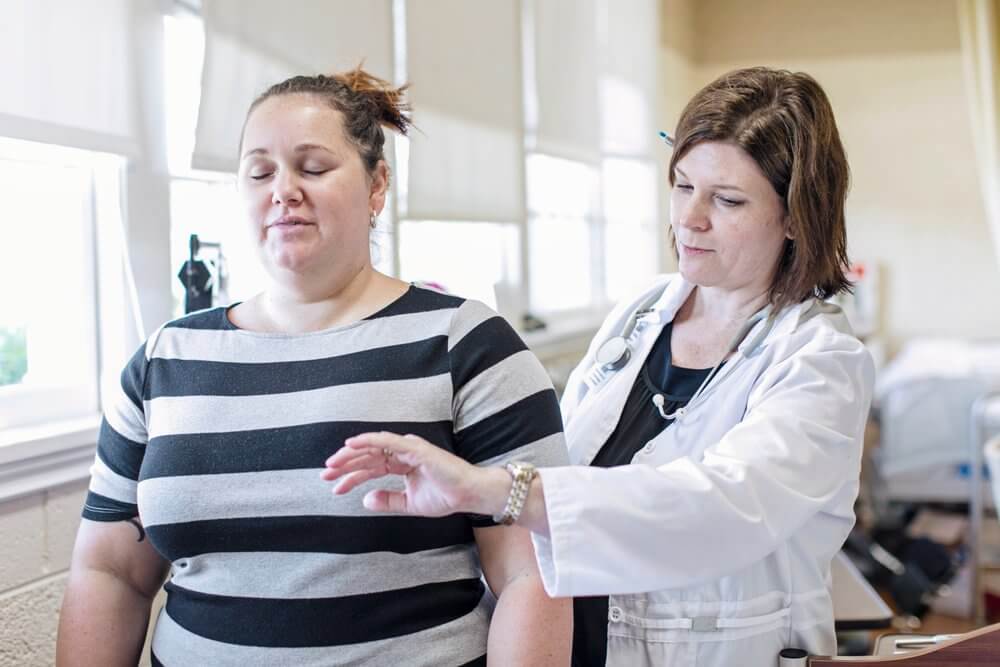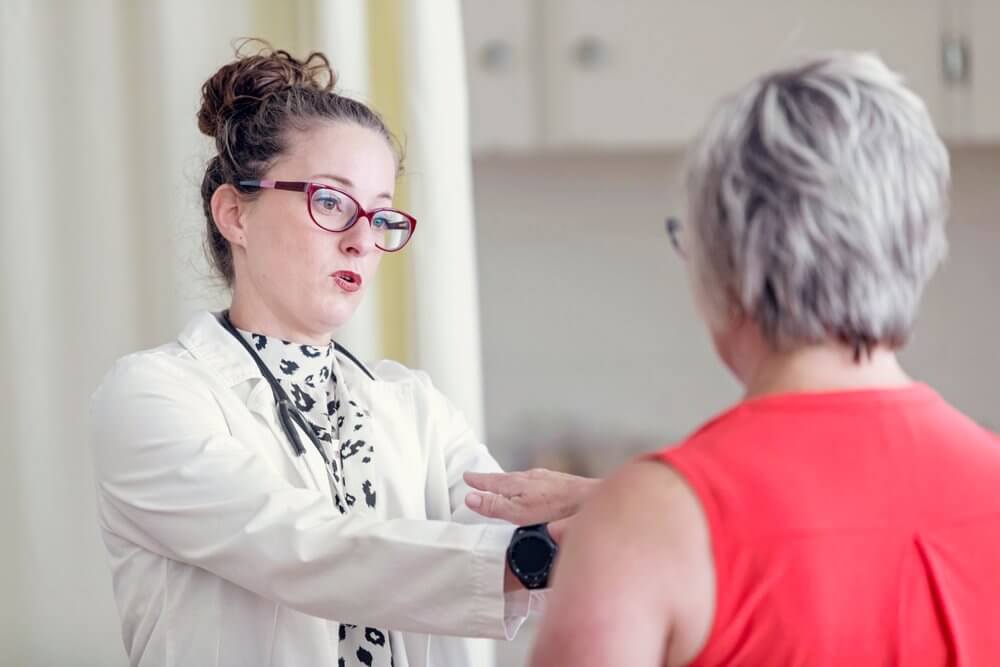Answering 10 FAQs About Online Nurse Practitioner Programs
by Carson-Newman … on December 11, 2025
Advancing your nursing career doesn’t have to mean putting your life or livelihood on hold. Online NP programs allow working RNs to pursue a respected graduate degree with the flexibility to study anytime, anywhere. Through accredited online NP programs, nurses can gain the clinical knowledge, leadership skills and expanded scope of practice needed to provide more autonomous patient care, all while continuing to serve their communities.
This guide answers the most common questions prospective students ask about online NP programs, including what to expect from Carson-Newman University’s online MSN-FNP and online Post-Master’s FNP certificate, designed to support you emotionally, academically and spiritually as you grow into an advanced practice role.
1. Are online NP programs fully online?
Most online NP programs offer coursework 100% online, allowing students to study around work and family commitments. Lectures, assignments, discussions and assessments are typically completed through an online learning platform. However, all accredited nurse practitioner programs include required clinical hours. These take place in person under the supervision of approved preceptors.
At Carson-Newman University:
The online MSN-FNP and online Post-Master’s FNP programs use a 100% online didactic format paired with hands-on, in-person clinical experiences near your home. You’ll also attend three brief on-campus immersions, during which faculty help you strengthen assessment and diagnostic skills.
2. How do clinical placements work if I’m out of state?
Clinical hours are a core part of every NP program, but how you secure them varies widely across schools. In many programs, students are responsible for finding their own preceptors, a process that can be time-consuming and stressful. For that reason, many prospective nurses specifically seek out online NP programs that find preceptors and offer structured placement support. It’s important to confirm whether a program provides assistance or arranges placements on your behalf.
At Carson-Newman University:
Carson-Newman offers dedicated clinical placement support for FNP students. A placement team works with you to identify and secure qualified preceptors in your local community whenever possible, even if you live outside Tennessee. This is especially helpful for nurses balancing work schedules or living in rural areas.
You can explore this topic further in C-N’s NP clinical placement FAQs.
3. Can I work while completing an online NP program?
Yes. One of the biggest advantages of many online NP programs is the ability to continue working while enrolled. Online coursework is designed to offer flexibility for nurses who work full-time, shift-based or variable schedules. It’s common for NP students to adjust hours or reduce shifts temporarily during clinical semesters, but most working RNs are able to balance both.
At Carson-Newman University:
Courses are delivered in a part-time format designed specifically for working nurses, which allows many students to continue their bedside or community-based roles throughout the program. Faculty understand the realities of nursing schedules and strive to support you through each stage.
4. Will I get the same quality of education as on-campus students in an online NP program?
Yes. The quality of an NP education is determined by accreditation, curriculum rigor, experienced faculty and clinical training, not by whether your lectures occur online or in a classroom. Credible accredited online NP programs follow the same standards and competencies required of traditional programs. Employers value graduates from programs with strong reputations, transparent outcomes and robust clinical preparation.
At Carson-Newman University:
The University’s FNP programs are accredited by the Commission on Collegiate Nursing Education (CCNE) and taught by experienced faculty who integrate Christian values, evidence-based practice and compassionate care into every course.
5. How long does it take to complete an online NP program?
Timelines vary. Most BSN-to-MSN programs take 2–3 years, depending on part-time or full-time study. Post-master’s certificates often take 12–24 months, depending on prior coursework.
Factors that influence duration:
- Transfer credits
- Full-time vs part-time pace
- How clinical hours are structured
- Whether the program offers accelerated or fast track NP programs online
At Carson-Newman University:
- The MSN-FNP is offered in a part-time format and can be completed in as few as 32 months.
- The Post-Master’s FNP Certificate is also part-time and typically takes 12–24 months, depending on your previous master’s coursework and any transferable credits.
6. Are online NP programs accredited and respected by employers?
Accreditation is essential. Employers expect NP graduates to come from programs that meet national standards in curriculum, faculty qualifications and clinical training. The most common accrediting body is the Commission on Collegiate Nursing Education (CCNE), which is recognized for ensuring that nursing programs meet rigorous professional criteria.
Graduating from an accredited online NP program also ensures:
- You’re eligible to sit for national board certification
- You meet educational requirements for licensure in most states
- Employers recognize your qualification as equivalent to an on-campus degree
Carson-Newman’s programs are CCNE accredited, ensuring they meet the highest standards in advanced nursing education.
7. What NP specialties are available online?
As demand for advanced practice nurses grows across care settings, more universities are offering specialized online nurse practitioner program options tailored to different patient populations and clinical interests. Many students appreciate the opportunity to choose a specialty that aligns with their long-term goals, whether that means supporting mental health, leading primary care for adults or caring for children and families.
Common online NP program specialties include:
- Family Nurse Practitioner (FNP)
- Psychiatric-Mental Health NP (PMHNP)
- Adult-Gerontology Primary Care NP (AGPCNP)
- Pediatric NP (PNP)
- Women’s Health NP
Family Nurse Practitioner (FNP) is one of the most widely available online options due to its broad scope of practice and high demand across communities.
If you’d like a deeper comparison of NP specialties, explore: Nurse practitioner specialties
At Carson-Newman University:
The University specializes in preparing Family Nurse Practitioners who care for patients across the lifespan, consistent with its mission to serve communities holistically and with compassion.
8. What are the job prospects after graduation?
Nurse practitioners continue to be one of the fastest-growing roles in health care. According to the U.S. Bureau of Labor Statistics, NP employment is projected to grow 35 percent from 2024 to 2034, much faster than the average for all occupations.
Common FNP roles include:
- Primary care clinics
- Urgent care
- Internal medicine
- Community health
- Rural health centers
- Retail clinics
- Specialty practices (e.g., cardiology, endocrinology, dermatology)
While salary varies by location, certification and experience, the BLS reports a median annual NP salary of $129,210.
For inspiration and purpose-driven career motivation, see: Why become an FNP
9. How do I get into an online NP program?
Admission to online NP programs is designed to ensure students are academically prepared and committed to advancing into an independent clinical role. While exact requirements vary by university and by state, schools generally look for nurses who have demonstrated strong clinical judgment, professional integrity and a passion for patient-centered care.
Admissions requirements vary, but most online NP programs require:
- A Bachelor of Science in Nursing (BSN) from an accredited institution
- An active, unencumbered RN license
- Minimum GPA (often 2.75–3.0)
- Professional references
- A personal statement or goal statement
- A background check
- Clinical experience (often preferred)
At Carson-Newman University:
Applicants to the online MSN-FNP or Post-Master’s FNP Certificate can work with an enrollment advisor to review transcripts, prepare materials and ensure they meet the program requirements. Carson-Newman looks for nurses who demonstrate clinical excellence, compassion, and a commitment to serving patients and communities.
10. How much does a BSN to NP program cost?
Costs vary widely depending on school type, location, credit hour rates and fees. Private universities generally have higher tuition than public institutions, and online programs may charge separate fees.
Total program costs usually include:
- Tuition per credit hour
- Learning technology fees
- Books and supplies
- Travel for campus immersions (if required)
- Background checks and immunizations
Because NP graduates advance into higher-level clinical roles, many students view tuition as an investment in long-term career growth.
This topic is covered in depth here: Is becoming a NP online worth it?
Carson-Newman University:
Your advisor can help outline exact tuition details, total program cost and any available financial aid. Carson-Newman is committed to keeping higher education accessible and mission-driven.

Is an FNP program at Carson-Newman University right for me?
Choosing the right NP pathway is a major decision. Finding a program that supports your goals, your schedule and your calling to serve is key. Online NP programs that combine flexibility with trusted clinical training allow you to keep caring for patients while preparing to step into a more autonomous provider role.
Carson-Newman University’s online MSN-FNP and online Post-Master’s FNP certificate programs equip nurses to deliver primary care across the lifespan with compassion, clinical excellence and a strong foundation of Christian values. Coursework is 100% online and designed for working nurses, with faculty who get to know you personally and help you thrive academically and professionally.
With dedicated clinical placement support, small class sizes and a mission to serve both God and humanity through health care, Carson-Newman University is committed to preparing practice-ready Family Nurse Practitioners who make a meaningful impact in their communities.
